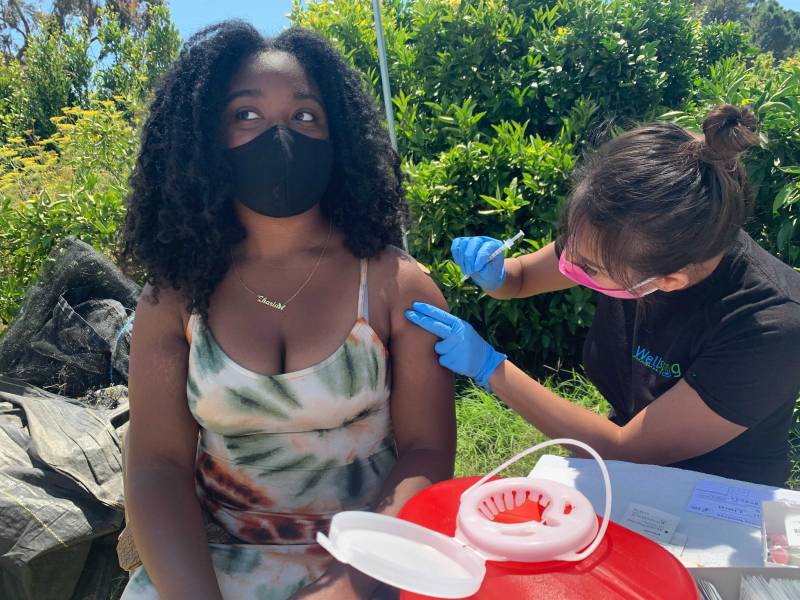Pan then successfully tightened regulations on medical exemptions in 2019 with a bill that required the California Department of Public Health to audit all medical exemptions at schools with immunization rates less than 95%, as well as any doctor who submits more than five medical exemptions per calendar year. Anti-vaccine protesters opposed the bill.
Friday’s COVID-19 vaccine mandate revived the issue of the personal belief exemption because the 2015 law requires any immunization requirements issued by the state health department without a vote from the Legislature to include the provision.
“At the time, we were more concerned about routine vaccinations. We were thinking, why have a fight that doesn’t really matter?” Pan said. “The laws that we wrote for school mandates were not written with pandemics in mind. That’s why that provision is in there.”
Pan says he’ll consider authoring legislation that would eliminate the exemption if COVID-19 cases spike across the state or if districts report a high number of students and staff who abuse this provision to avoid the vaccine.
A possible bill, Pan said, would require the COVID vaccine to be treated like the 10 required inoculations that don’t allow for a personal belief exemption.
“The problem with the personal belief exemption is that if there are too many people who use it, we’ll have schools that are unsafe,” he said. “We need to be sure kids can stay in school and learn and not have to be sent home for two weeks.”
The California chapter of the American Academy of Pediatrics released a statement in support of the mandate.
“The eradication of smallpox and polio, as well as prevention of meningitis, measles and whooping cough, show that vaccines work,” said chapter Chair Yasuko Fukuda. “New vaccines are developed and evaluated by a long-standing rigorous process to ensure effectiveness and safety.”
Catherine Martin, executive director of the California Immunization Coalition, a public-health advocacy group, said she understands the concerns of the parents who are hesitant about the COVID-19 vaccine, but agrees that the personal belief exemption should be eliminated.
“The No. 1 reason to eliminate the personal belief exemption is to be consistent,” Martin said. “This vaccine is no riskier than any other vaccine.”
Martin said her organization will spend the coming months supporting pediatricians and school administrators as they explain the benefits and risks of the COVID-19 vaccine to students and their families.
“Parents are suffering because they really are scared,” she said. “Doctors are really going to need to up their game in terms of taking time and answering their questions.”
However, Martin has less sympathy for teachers and school staff who refuse to get vaccinated for political reasons.
“If they’re not believing in the science or if it’s a political belief, perhaps they need to find other work,” she said. “Perhaps this is going to weed out folks who don’t believe in the science.”
California Teachers Association President E. Toby Boyd released a statement last week supporting the vaccine mandate for students, saying the vast majority of teachers have already been fully vaccinated.
“While recognizing the need for medical and religious exemptions, we believe vaccinations are key for both student and educator safety, keeping our schools open for in-person instruction and for combating this pandemic,” Boyd said.
CTA Spokesperson Lisa Gardiner declined to comment on whether the union would support the elimination of the personal belief exemption if legislators were to propose a bill.
McFadden, from the Nevada Joint Union High School District, expects that most of his employees, even those opposing the mandate, will eventually get their vaccines so they can keep their jobs. He said when the governor issued a previous mandate requiring teachers to be vaccinated or undergo regular testing, many teachers complained, but most came around.
